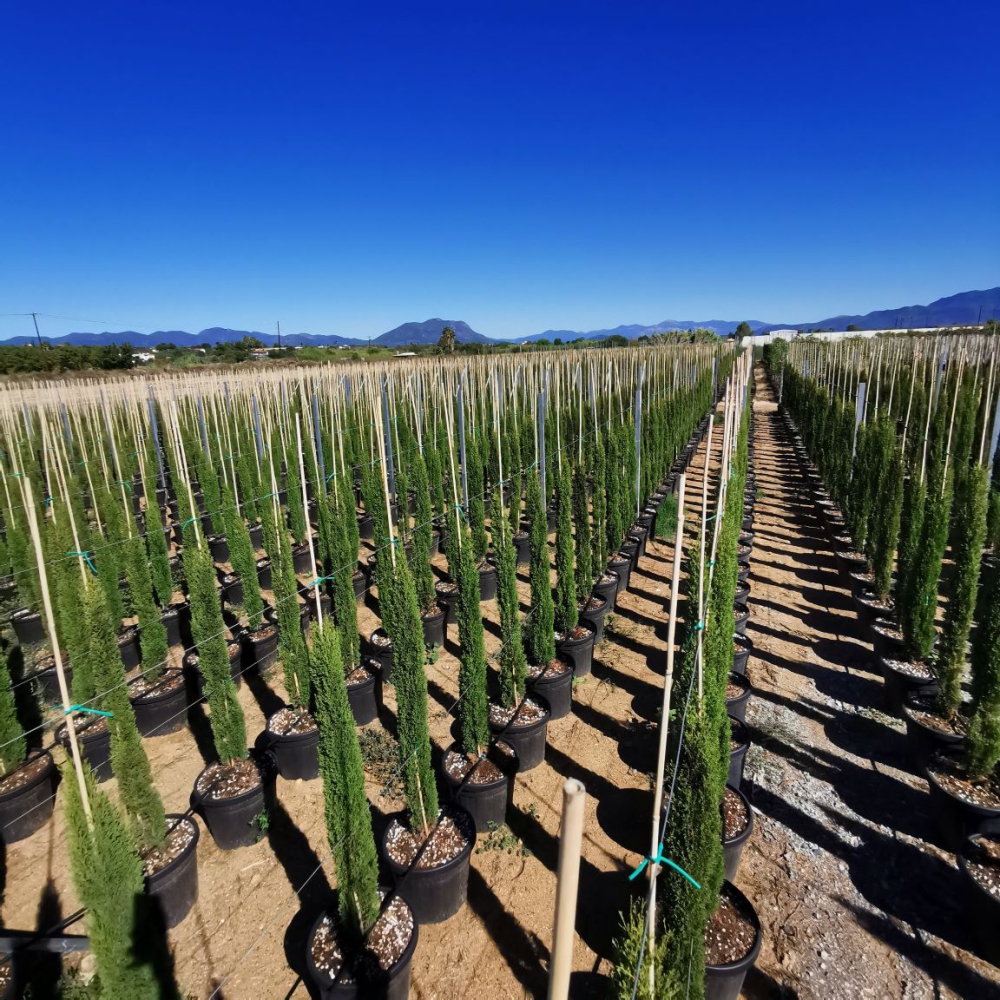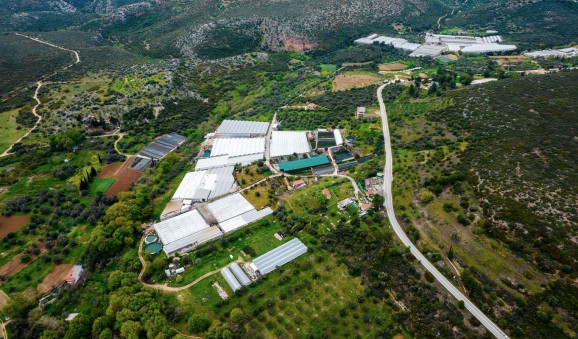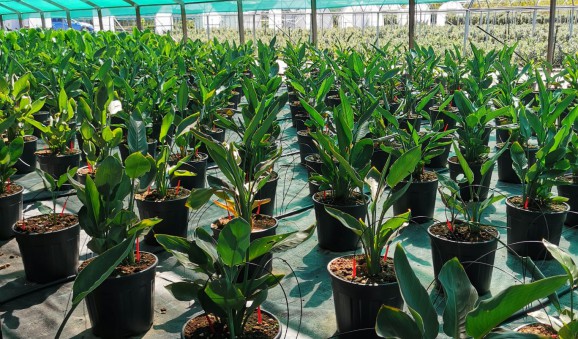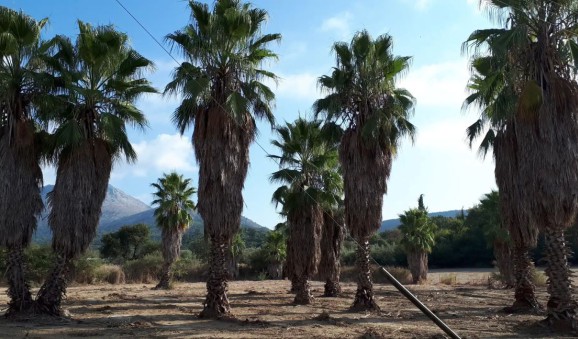Unlocking the Potential: Challenges Faced by Greek Nurseries in Europe market

Greece has always had a tradition of growing and producing a wide range of plants (trees, ornamental plants, etc.). Weather conditions are favourable for plant growth, both outdoors and in a greenhouse. Let us take a look at the current 'state of the art' in the Greek nursery industry
Introduction
Throughout the history of mankind, plants have had a primary role in the lives of each culture, whether in agriculture or for garden design or interior decoration. In agriculture, the plants (trees, bushes, flowers, etc.) were produced, which were the food of man and his animals. The design of gardens showed the level of civilization from ancient times. The examples are quite a few and some are well known such as the hanging gardens of Babylon through the ages. Also, ornamental plants played a special role in Asian cultures such as ancient China and Japan.
As a result, this had the desire of many peoples to multiply the plants available to them and others to be used according to their needs or, as it exists in historical sources, they traded with other neighboring peoples different species that thrived in their own lands. In fact, many civilizations, especially nomadic ones, when they migrated to other parts of the world, brought with them plants from different areas they were passing through in order to use them in the new place they would settle.
Nowadays the population of the earth has increased exponentially and the modern way of life in megacities in which the flora is absent makes the need for the production of a greater quantity and its distribution all over the world greater and greater. The design of green-centered areas is imperative. In recent years synchronous transport and communications have created a global society which allows the exchange of goods and ideas from all over the world in a very short time.
Tradition
Greece has always had a tradition of cultivating and producing a wide range of plants (trees, ornamentals, etc.). The weather conditions are favorable for the growth of the plant both outdoors and in a greenhouse. The high level of specialization of the last years, the years of knowledge, the quality and the variety of the products of the Greeks can make their product available in foreign markets and especially in European markets at a good price-quality ratio.
However, despite the abundance of high-quality nurseries and climate advantage the Greek horticultural sector faces significant challenges in exporting its plants to the rest of Europe. This article explores the reasons behind this disparity and suggests potential solutions to unlock the full potential of the Greek nursery industry.
• Challenges in Plant Exportation and availability:
Τhe problems and challenges are almost the same both for the disposal of plants in the Greek market and in the foreign market:
1. Regulatory Hurdles: The European Union has stringent regulations governing the import and export of plants to prevent the spread of pests and diseases. Navigating these regulations can be a complex and time-consuming process for Greek nurseries, creating a barrier to entry into the European market.
2. Limited Market Access: Greek nurseries often face challenges accessing key European markets. Issues related to transportation, logistics, and distribution can hinder the efficient and timely delivery of plants to buyers in other European countries.
3. Lack of Marketing and Promotion: Many Greek nurseries struggle with limited marketing and promotional activities compared to their European counterparts. This lack of visibility on the international stage makes it difficult for them to showcase the quality of their plants and attract potential buyers.
4. Insufficient Industry Collaboration: The lack of collaboration and coordination within the Greek nursery industry hampers its ability to establish a unified and strong presence in the international market. A more cohesive industry approach could help address common challenges and enhance the sector's competitiveness.
Potential Solutions:
1. Streamlining Regulatory Processes: Working with regulatory bodies to simplify and streamline the export process for plants can significantly benefit Greek nurseries. Establishing clearer guidelines and providing support to navigate regulatory hurdles will make it easier for nurseries to comply with European standards.
2. Investing in Infrastructure: Improving transportation infrastructure and logistics networks will enhance the efficiency of plant exports. This includes better connectivity to major European markets and investing in packaging facilities to ensure the safe and timely delivery of plants.
3. Promoting Industry Collaboration: Encouraging collaboration among Greek nurseries, industry associations, and government agencies can lead to a more cohesive and strategic approach to international market expansion. Shared resources, knowledge, and experiences can help overcome common challenges.
4. Enhancing Marketing Efforts: Increased investment in marketing and promotional activities will raise awareness of Greek nurseries and their high-quality plants. Participation in international trade shows, online platforms, and collaborations with European partners can help showcase the diversity and excellence of Greek horticultural products.
Some figures
In Greece there are 1034 nurseries, with a total production area of 1399 ha and 8.760 people employed. The totaal production value is 62.000.000 Euro (figures 2023) Compared to 2021 the production value has risen with 24%, the number of ha with 7,6% and the number of employees decreased with 12.4%
- TREND overview (compared to 2018):
|
PRODUCTION |
INTERNAL RETAIL MARKET |
INTERNAL AMENITY MARKET |
EXPORT MARKET |
||||
|
2017-2018 |
- |
2017-2018 |
- |
2017-2018 |
- |
2017-2018 |
- |
|
2018-2019 |
LESS 15% |
2018-2019 |
INCREASE 20% |
2018-2019 |
LESS 10% |
2018-2019 |
INCREASE 30% |
|
2019-2020 |
+50% |
2019-2020 |
+30%
|
2019-2020 |
-80%
|
2019-2020 |
+50%
|
STATISTICS 2021
|
Number of nurseries: |
1038 |
|
Production area (hectares): |
1300 |
|
Number of workers: |
10.000 |
|
Production value (EUR): |
50.000.000 |
|
Year (of your data): |
2021 |
STATISTICS 2022
|
Number of nurseries: |
1044 |
|
Production area (hectares): |
1420 |
|
Number of workers (FTE*): |
9580 |
|
Production value (EUR): |
54.000.000 |
|
Year (of your data): |
2022 |
STATISTICS 2023
|
Number of nurseries: |
1034 |
|
Production area (hectares): |
1399 |
|
Number of workers (FTE*): |
8760 |
|
Production value (EUR): |
62.000.000 |
|
Year (of your data): |
2023 |
Conclusion:
While Greece possesses all the natural ingredients for a thriving nursery industry, challenges in regulatory compliance, market access, and industry collaboration have hindered its potential on the international stage. By addressing these issues through streamlined regulations, improved infrastructure, enhanced collaboration, and strategic marketing efforts, Greek nurseries can overcome these hurdles and position themselves as competitive players in the European plant export market. Unlocking the potential of the Greek nursery industry will not only benefit local businesses but also contribute to the broader European horticultural landscape.
Author: Stavroula Papadopoulou, chief editor of Garden Magazine (Gr)


